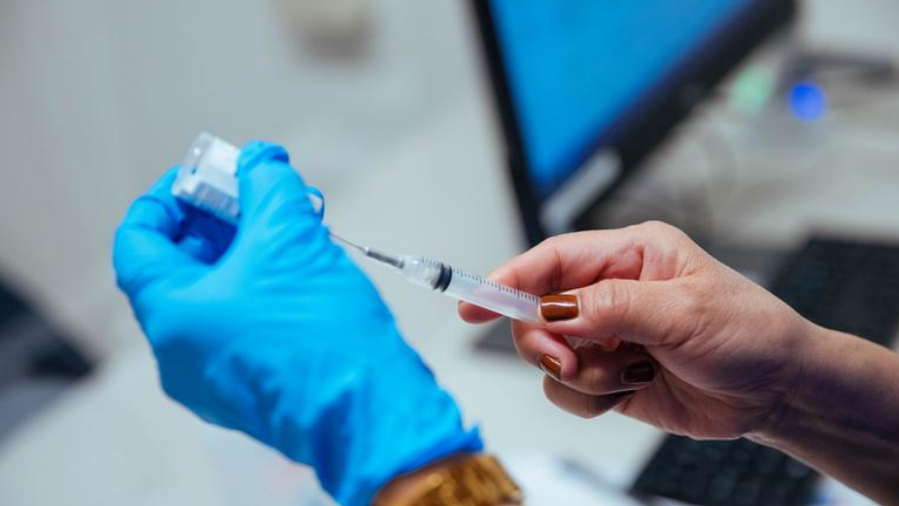
A nurse prepares a dose of a COVID-19 vaccine. /Reuters
A nurse prepares a dose of a COVID-19 vaccine. /Reuters
The European Union refined its rules on the export of COVID-19 vaccines on Wednesday, giving it a clearer right to block shipments to countries such as Britain with higher inoculation rates and to those not exporting their own vaccine doses.
The move risks stoking post-Brexit tensions with London, which has warned Brussels against "vaccine nationalism".
EU trade chief Dombrovskis told a news conference the export authorization mechanism was not targeting any specific country.
The European Commission, which oversees trade policy for the 27 EU members, set out a proposal expanding existing measures that seek to ensure planned exports by drugmakers do not threaten already reduced EU supply.
The granting of export licenses will be based on reciprocity and "proportionality" – the epidemiological situation, vaccination rate, and access to vaccines in the destination country.
EU officials say export restrictions could also kick in if companies do respect quarterly contracts but backload supplies at the end of the period.
Dombrovskis said the new rules did not create a detailed algorithm on authorizations and requests would be considered on a case-by-case basis.
The scheme will also widen the net to include 17 neighboring countries, including Israel, Norway and Switzerland. Previously exempted, exports to these countries will also need authorization.
Alarming third wave
The proposal is set to be a topic of discussion on Thursday at an online summit of EU leaders, whose countries are struggling with the third wave of infections that has prompted harder lockdowns amid a slow rollout of vaccines.
EU Health Commissioner Stella Kyriakides said the situation in many EU countries was "alarming", with increasing cases in 19 EU members and rising fatalities in eight.
While France, Germany and Italy broadly support tighter export curbs on those who do not reciprocate, countries including the Netherlands, Belgium and Ireland are more cautious about cutting off Britain.
A French presidential adviser said the EU should not be a sort of "useful idiot" in the battle against the virus.
Irish Prime Minister Micheal Martin said any EU restrictions on vaccine exports would be a "retrograde step".
A UK government spokesperson said all countries were fighting the same pandemic and that Britain would continue to work with European partners to deliver the vaccines.
The commission insists it is not an export ban and says priority systems set up for vaccinating citizens in other countries are de facto bans even if they are not called that.
The bloc said it had exported 43 million doses to 33 countries since the end of January, including 10.9 million to Britain. Some 380 export requests were granted, and only one was blocked – from Italy to Australia.
The EU has so far authorized four COVID-19 vaccines. AstraZeneca doses were supposed to be the vaccination for the masses, but deliveries have and will be far lower than initially indicated.
EU countries have given doses to about 10 percent of their adult populations and have watched Britain provide at least one vaccination to over half of all adults, suffering almost no delivery problems, despite the same plants officially supplying both.
The commission's proposal will come into force unless a "qualified majority" of EU members oppose it, which is very unlikely.
Source(s): Reuters

